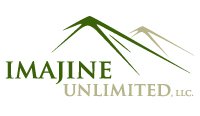“The greatest discovery of the 20th century is the fact that a human being has the ability to change his attitude.” – William James
Do you want to be the best you can be? I find that most people have a natural desire to move towards a greater potential. It seems to be hard-wired within us. We can be motivated by external rewards or punishments, but when those go away, the motivation will too. But the drive towards potential is an internal motivation that is a continual flow of energy.
Abraham Maslow published his well-known paper in 1943 called “A Theory of Human Motivation.” In this paper he describes a hierarchy of human needs that motivate us. First, we need our physiological needs met, then safety needs, then love and belongingness, followed by esteem needs and then finally towards reaching self-actualization.
We also find that the most highly productive people have two important skills; they are self-aware and authentic. To be able to progress through Maslow’s hierarchy of needs towards our highest potential, we must first be aware of our needs and then be authentic to ourselves by ensuring those needs are being met.
One way we become more aware, whether as an organization or as an individual, is through assessing and evaluating ourselves. Since awareness of needs is part of reaching potential, we should see people excited about assessments and evaluations. It is an opportunity to boost our motivation. Yet, when words like “organizational assessments” or “employee evaluations” are spoken, fear and anxiety are often the immediate response. However, I don’t always see this response in everyone. So, what is the secret to creating a place where people welcome the opportunity of awareness?
Mindset and Culture
I remember when my mom had a realization that she grew up with an assumption/ internal belief that “those who fail deserve to be punished.” This underlying assumption was a basis of the family culture in which she grew up. Mindsets that are not helpful can be replaced with habits of thinking that are helpful. So, I work to be self-aware of when this assumption from my family culture is in my own thinking and is demotivating me. I then replace it with the belief that I have “the opportunity to learn through failure and mistakes.” For me, it is the beauty of redemption.
Just like a family is a system and has a culture that is driven by underlying core values with beliefs and assumptions, organizations are also systems in the same way. When evaluations happen in your organization, is there an underlying assumption that those who fail deserve to be punished? Are evaluations framed in a way that represents your core values? When people leave an evaluation, do they feel encouraged by the opportunities they have to continue to grow? Or do they walk away feeling deficient and failing? How are you framing your evaluations?
Structure – Motivate or Demotivate
When you look at your policy and procedures with evaluations, do they motivate or demotivate people? Do you have an evaluation only once a year where people are caught off guard or surprised by the feedback and leave wishing someone had given them feedback earlier so they could have corrected it or learned sooner? Do you have policies on how people are rewarded or not rewarded on evaluations that are not explained to team members or don’t make sense? Are you doing things because it is the way it has always been done or adapting to change when a structure is shown to not be working?
The strongest level of awareness happens when people own it individually as a culture. This is when people naturally are giving feedback everyday rather than just out of a policy or procedure. The first step is for the leader to lead the way. As leaders how are you modeling a culture where you ask and seek feedback from others every day? If you are reticent to seek feedback in everyday work-life, what does that say about your organization’s culture? How do you want to be a part of the change?
Capacity to Assess
Assessing ourselves and our organization takes time. I think this is one of the biggest hindrances to awareness, is that we don’t prioritize it enough by giving it the value of time. One of the items that I have leaders rated on in evaluations is whether others are observing them in self-reflection, and if as a leader, they are promoting others to take time in self-reflection. I often find this to be one of the lowest rated items on these assessments. Are you building into your organization the capacity of time for self-awareness?
In the same way, we can grow as an organization by using organizational assessments. The data provided by these assessments can be very helpful to direct strategic planning towards our potential. However, it can be typical to hear employees groan when they hear that they are being tasked to be a part of such assessments. One of the reasons for this is because these assessments can take a lot of time. Are you including in your organization the priority through capacity to complete these assessments? Is this just being added to team members’ already full workload? Or are you building the capacity to do self-assessments and being a part of organizational assessments as a part of their role? Are you helping employees know the value received from these assessments?
How are you making assessments and evaluations a positive part of your organization to promote awareness and then authenticity?
